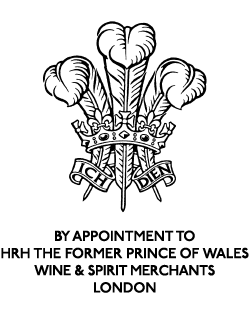2010 Clos de la Roche, Grand Cru, Domaine Dujac, Burgundy
- Red
- Dry
- Full Bodied
- Pinot Noir
Ready - youthful
- Antonio Galloni
- 93-95/100
Product: 20101030543
Colour Red
Sweetness Dry
Vintage 2010
Maturity Ready - youthful
Grape List Pinot Noir
Body Full Bodied
Producer Dujac
Critics reviews
Antonio Galloni 93-95/100
The 2010 Clos de la Roche wafts from the glass with sweet scents of tobacco, crushed flowers and spices. Tasted after the Charmes, the Clos de la Roche comes across as decidedly feminine, but there is plenty of weightless energy being held back, at least that is the sense I get today. Anticipated maturity: 2020-2035.antonio_galloni - 29/02/2012
Drink 2020 - 2035
About this wine

Pinot Noir
Pinot Noir is probably the most frustrating, and at times infuriating, wine grape in the world. However when it is successful, it can produce some of the most sublime wines known to man. This thin-skinned grape which grows in small, tight bunches performs well on well-drained, deepish limestone based subsoils as are found on Burgundy's Côte d'Or. Pinot Noir is more susceptible than other varieties to over cropping - concentration and varietal character disappear rapidly if yields are excessive and yields as little as 25hl/ha are the norm for some climats of the Côte d`Or.
Find out more

Dujac
Jacques Seysses created Domaine Dujac in 1967 having decided to turn his passion into his vocation. He purchased, a somewhat rundown, Domaine Graillet in Morey-St Denis and quickly turned things around to make a showstopping debut with the 1969 vintage. About Domaine Dujac This is every bit the family business. Jacques’ wife Rosalind arrived from California to work the harvest and never left. They married in 1974 and today their sons Jeremy and Alec, together with Jeremy’s wife Diana, run the estate day to day. They remain under the watchful eye of their parents. In the vineyard Jacques first purchase was a small estate of 5ha, which today has grown to around 17ha. The jewels of the domaine are the seven plots in Grand Crus. Away from these exalted sites there are impeccable village vineyards and magnificent 1er crus, including Aux Combottes in Gevrey and Les Malconsorts in Vosne. Both of which are immediate neighbours of Grand Crus and produce extraordinary wines. Sustainability Jacques and Rosalind began running the vineyards according to the principles of lutte raisonée (where minimal chemicals are used) in 1987. Working consistently towards a more natural approach, in 2001 they experimented with organic viticulture in 4ha of their prime sites. Then adding biodynamic farming principles to the repertoire in 2003. They were so encouraged by the results in the bottle they made the switch to organic for the entire estate in 2008, earning certification in 2011. Their intensive work to create a natural and varied ecosystem is driven by their belief that the health of the soil is the key to unlocking great quality and producing more expressive wines. In the winery The evolution of the winemaking at Dujac has been guided by the principle that the largest imprint on the wines should be from the vineyards themselves. The approach is all about simplicity. The use of whole bunches in fermentation is a distinctive feature here and something for which Jacques has been a leading advocate. Jeremy feels that they add complexity and give silkier tannins, but they must be ripe so the approach is carefully adjusted according to the vintage. In the winery they have sought to reduce manipulation wherever possible. After crushing the must is gravity fed into the cellar, avoiding the need for pumping which can exert too much force on the nascent wine. They have also been able to regulate alcohol and malolactic fermentations more precisely with improved temperature control. Dujac’s wines are not renowned as the most powerful and nor do they want them to be. These are wines of polished finesse and restraint, elegant aromatics, and depth of fruit. They are nothing short of beguiling.
Find out more
